Raksha Bandhan, also known simply as Rakhi, is a significant Hindu festival that celebrates the sacred bond between Brothers and Sisters. Observed on the Full Moon day of the Hindu month of Shravan (usually in August), this festival is marked by the tying of a Rakhi — a sacred thread — by a Sister on her Brother’s wrist. In return, the Brother promises to protect her from harm and offers a gift as a token of his love and commitment.
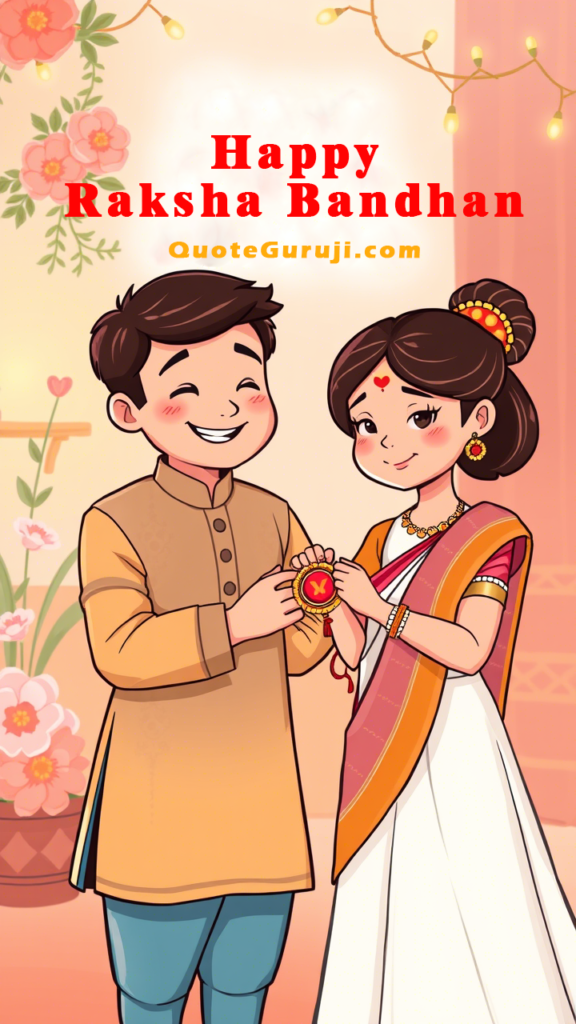 Download Image
Download ImageThe word “Raksha” means protection, and “Bandhan” means bond, symbolizing the deep-rooted affection and responsibility shared between siblings. This festival transcends biological relationships and is often celebrated among cousins, close friends, and even between people of different communities as a gesture of goodwill and trust.
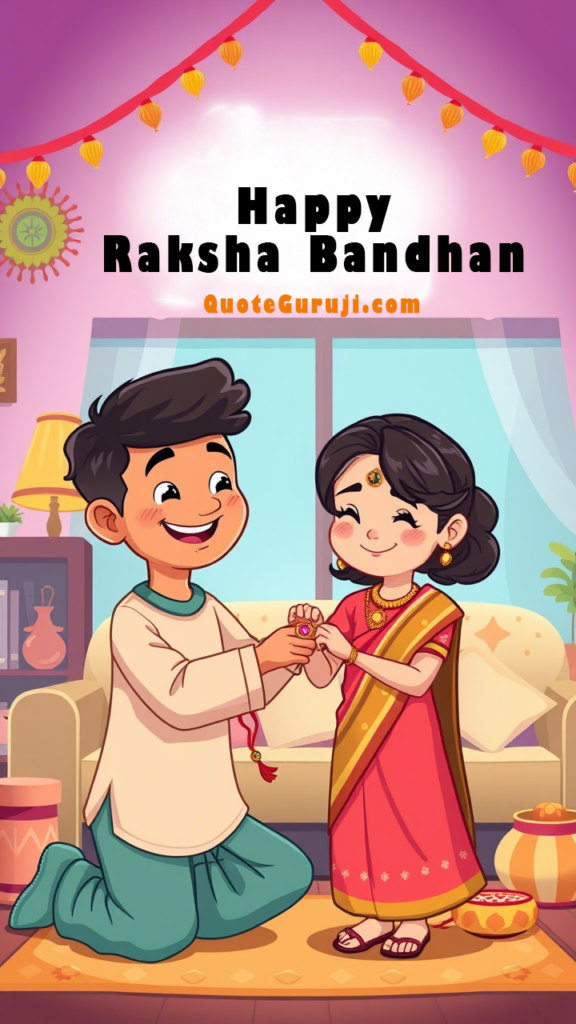 Download Image
Download ImageOn the day of Raksha Bandhan, sisters prepare a special thali (plate) containing Rakhis, kumkum (vermilion), rice grains, sweets, and a diya (lamp). The ritual typically involves the sister applying a tilak on her brother’s forehead, tying the rakhi on his right wrist, performing an aarti, and offering him sweets. The brother, in turn, blesses her and often gives her a gift. This simple yet powerful ritual reinforces the emotional bond and mutual respect between siblings.
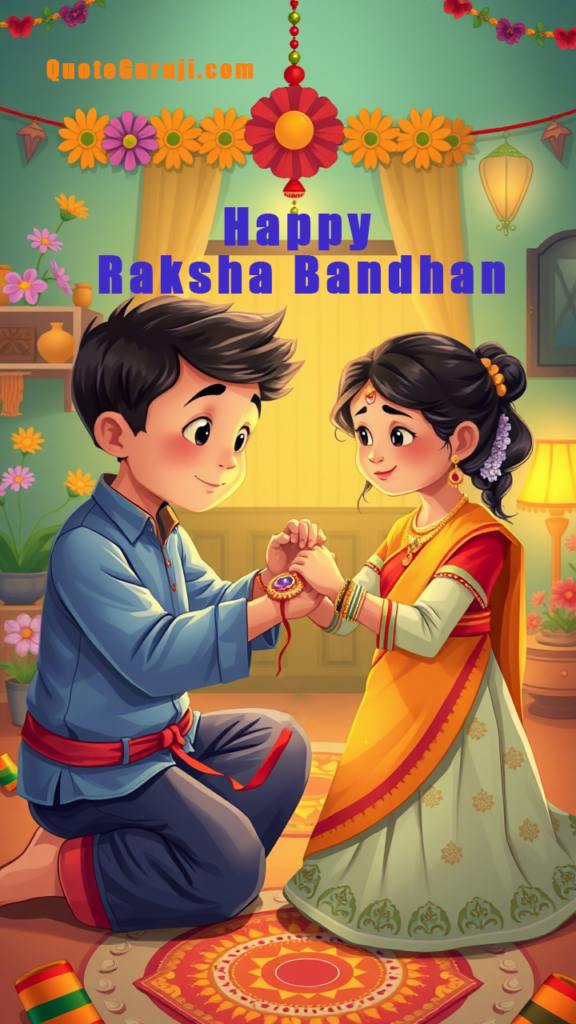 Download Image
Download ImageHistorically and culturally, Raksha Bandhan has roots in various Indian legends. One of the most popular tales is that of Draupadi and Lord Krishna, where Draupadi tied a strip of her saree on Krishna’s bleeding finger, and in return, he promised to protect her always. Another legend speaks of Queen Karnavati of Mewar, who sent a rakhi to Emperor Humayun, seeking protection from enemies. Honoring the bond, Humayun marched with his army to defend her kingdom.
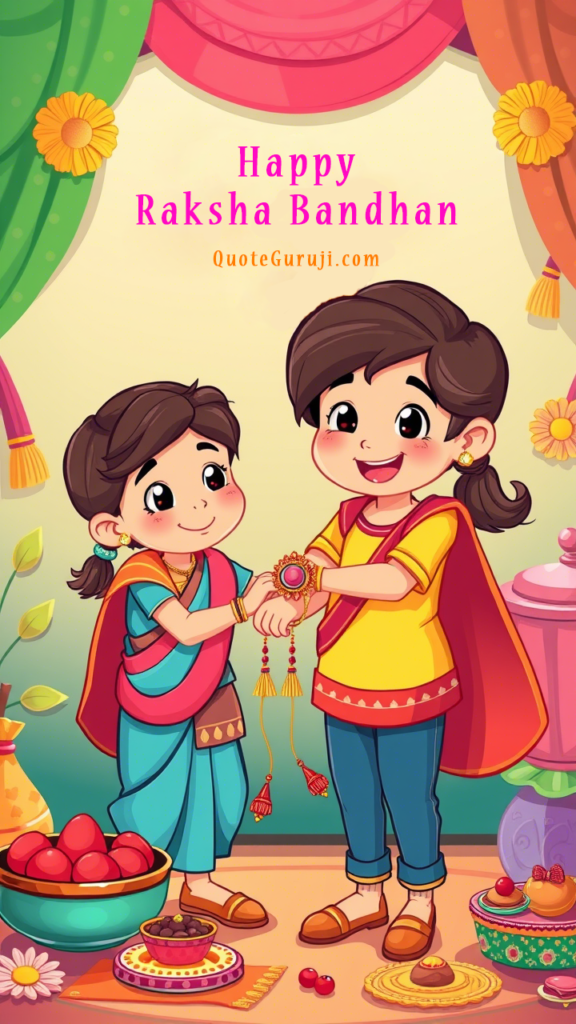 Download Image
Download ImageIn modern times, while the traditional sentiment remains intact, the way Raksha Bandhan is celebrated has evolved. In urban areas, people send rakhis and gifts by post or through online services if they are far away from their siblings. Some sisters even tie rakhi to soldiers and policemen, acknowledging their role in protecting society. This extension of the ritual symbolizes broader ideas of security, care, and unity beyond the family.
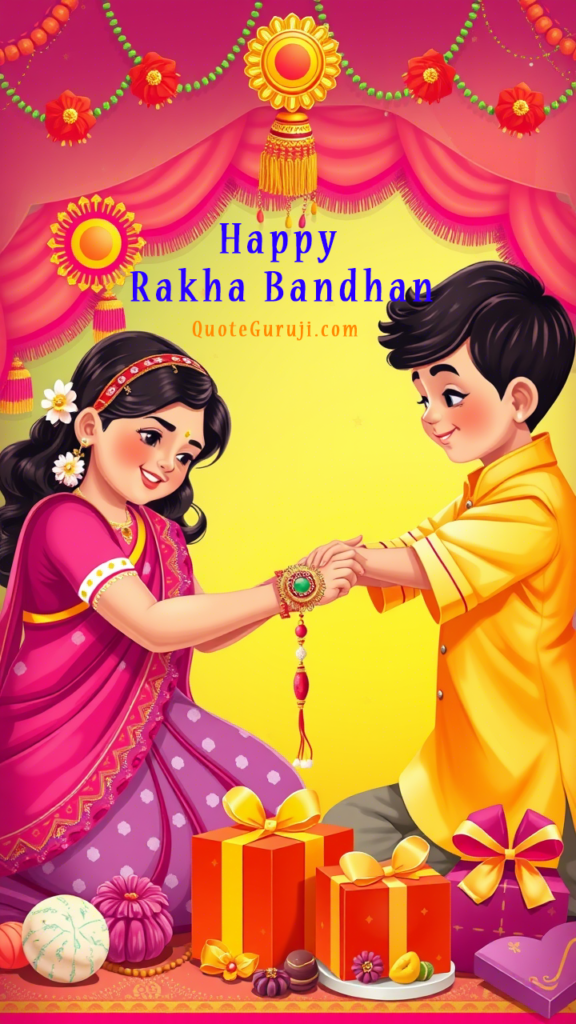 Download Image
Download ImageRaksha Bandhan is not just about rituals — it’s a festival of emotions, memories, and promises. It brings families together and provides an opportunity to express affection, resolve past conflicts, and celebrate siblinghood. In a world that often feels divided, festivals like Rakhi remind us of the values of love, care, and unity.
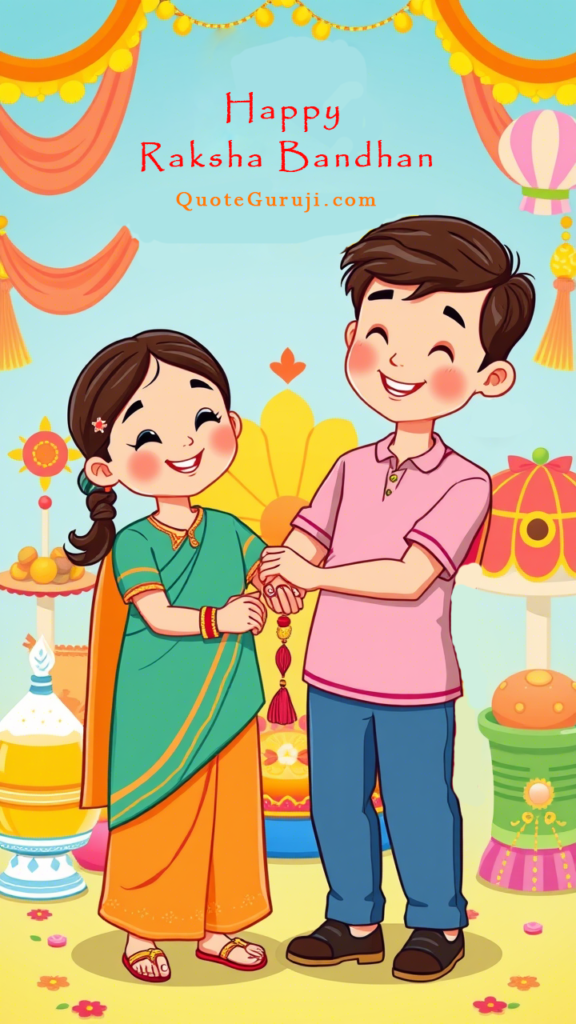 Download Image
Download ImageIn conclusion, Raksha Bandhan is a beautiful Indian tradition that honors the timeless bond between brothers and sisters. It is a day filled with joy, laughter, and heartfelt emotions. As society evolves, the essence of Raksha Bandhan remains the same — the pledge of protection, the celebration of love, and the reaffirmation of family ties.